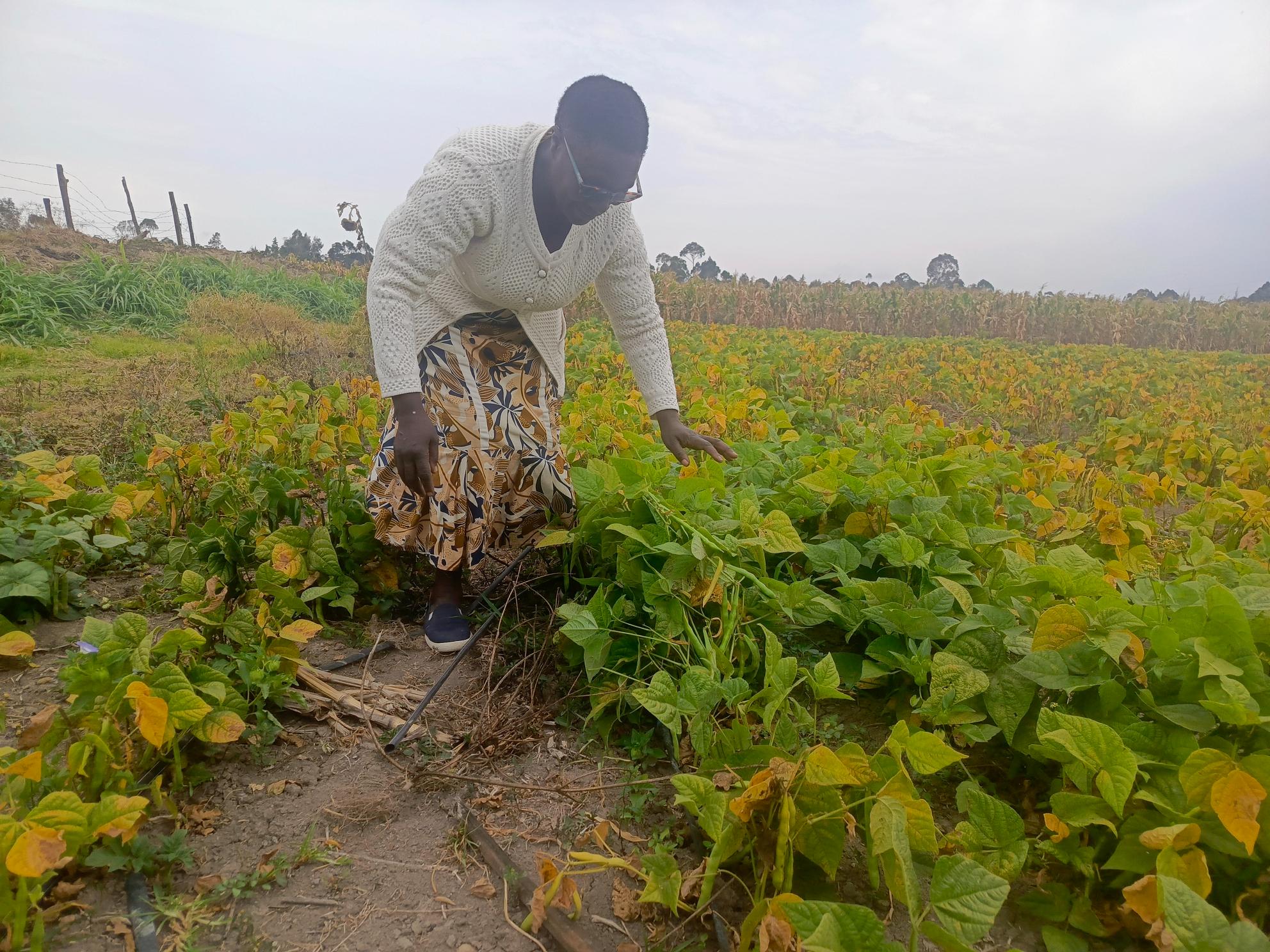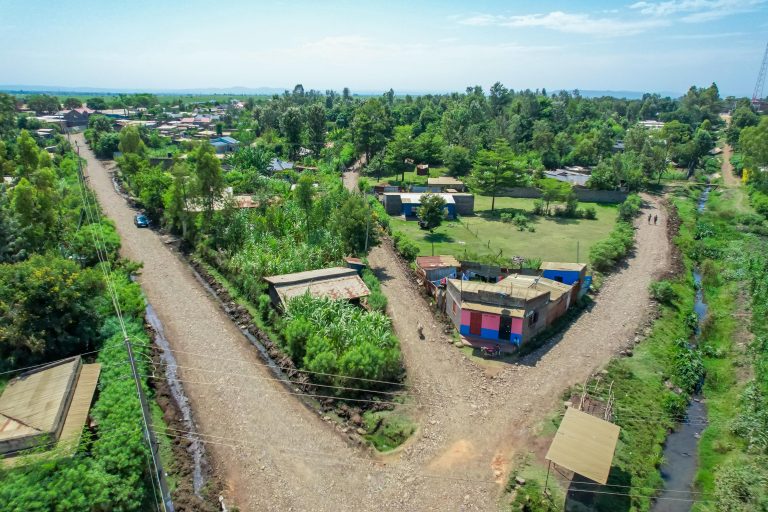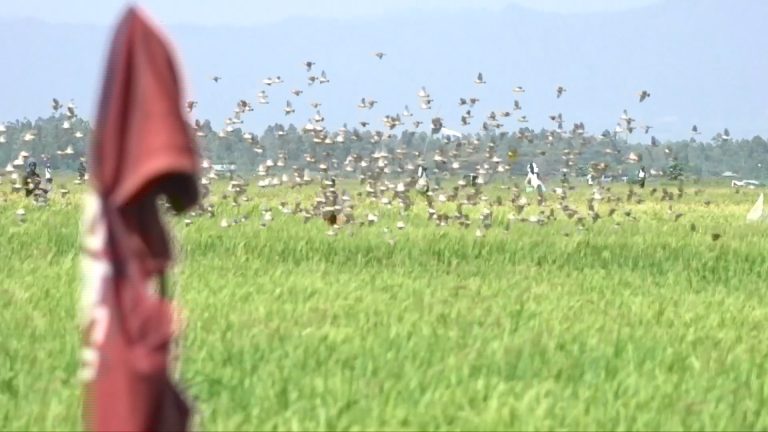A single crop, the Nyota bean variety, has changed lives, created business opportunities and uplifted seven farming communities across the country.
Esther Gitahi, a farmer and aggregator from Blue Line in Kahuho Narumoro, Nyeri county, has found both sustenance and financial success through the cultivation of Nyota beans.
While she grows a variety of crops on her farm, Nyota beans remain her primary focus. This is thanks to their high yield, low water requirements and strong market demand.
“I have been growing Nyota beans since 2023. It’s been more than two years now, and I’m still at it because the beans offer food for my family and income through commercial sales,” she said.
Gitahi notes that Nyota beans thrive under moderate irrigation. “They don’t need a lot of water. In fact, if someone leaves the irrigation water running too long, it can damage the crop.”
But water isn’t the only concern. The beans are also a favourite for birds, insects and pests. “Birds love this bean just as much as people do,” she says, adding that there is a need for constant vigilance during the growing season.
When she first started growing Nyota beans, Gitahi recalls impressive yields. At the beginning, one kilogramme of seed could yield between 38 40 kilograms. However, over time, yields began to decline slightly due to continuous cropping on the same land. “We now practice rotation, growing something else in between seasons to maintain productivity,” she said.
Despite this, the Nyota variety remains a favourite among consumers. “Many people prefer it because it doesn’t cause bloating or gas like some conventional bean varieties,” Gitahi said. “I never used to eat beans because of the acidity, but now I enjoy them.”
Initially, she planted just 1.5 kg of Nyota seed. The results were so promising that her production increased more than fivefold, leading to significant profits. “It has kept me going financially,” she said.
Gitahi’s journey took another leap forward when the Kenya Agricultural and Livestock Research Organisation connected her with Delish & Nutri Company, a Nyota bean off-taker. “They appointed me as an aggregator, so instead of buying from individual farmers in small quantities of two, five or 10kgs, I collect the produce in bulk on their behalf.”
Her aggregation centre currently holds about five tonnes of Nyota beans awaiting collection. Based on her records, she started with 2.8 tonnes, including 1,400 kg from her own farm.
The second collection was 2,860kgs, then 2,855kgs, followed by 2,770kgs and another at 2,023kgs. The numbers keep growing, she adds.
Despite occasional delays, Gitahi said the company pays farmers promptly at a favourable rate of Sh100 per kilogramme. This is higher than the local market price of Sh65–70. “Payments are made directly to farmers via mobile money, ensuring transparency and convenience,” she said.
Dr David Karanja, the National Bean Coordinator at Kalro, explained that the success of the Nyota bean value chain is tied to a model they are using called Inclusive Seed Demand.
The Inclusive Seed Demand Model is being implemented by Kalro in collaboration with the International Centre for Tropical Agriculture.
“When farmer-to-farmer seed distribution becomes saturated in a region, prices fall and farmers lose motivation. So, we start by securing the market first, identifying who will buy the produce and then connecting them to farmers and consumers,” Karanja said.
He notes the importance of engaging off-takers who purchase large volumes, often requiring at least 100 bags per consignment, which makes transportation and aggregation more efficient.
“The bigger the consignment, the cheaper the transport. These off-takers either process the beans for supermarkets, export, or sell them as value-added products like pre-cooked beans,” he added.
Through the Inclusive Seed Demand project, Kalro also aims to link certified seed production with reliable off-takers, to ensure a sustainable value chain from seed to market.
by AGATHA NGOTHO













